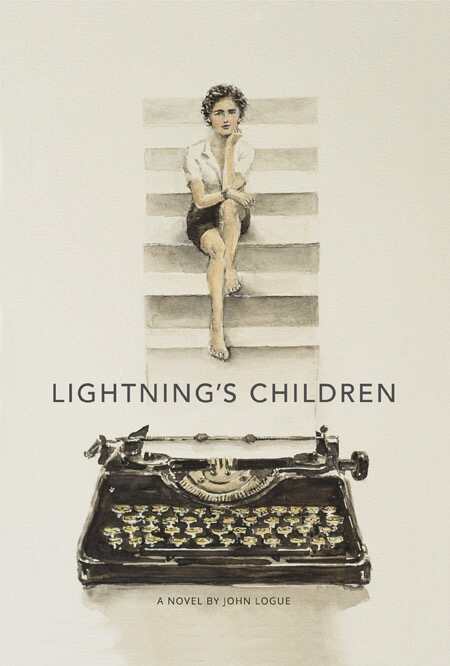Lightning's Children
Lightning’s Children is a fever dream of a novel in which a columnist’s whims set his community ablaze.
In John Logue’s satirical novel Lightning’s Children, a columnist publishes a raunchy piece without considering his varied, wide audience first.
In 1972 in Atlanta, Alec Spotsworth is bored. But because he writes a daily column for the The Observer, he is able to pen an ode to women’s panties. It passes by the paper’s editors, who each believe that someone else will stop it down the line, and makes it to print. It sends Atlanta into an uproar.
Some are angry that the newspaper would publish something so salacious; others are turned on, and hope for more from the writer. Then Spotsworth meets Tennie (who did not read the column) at a column-inspired protest; he joins her on a whirlwind adventure that culminates with a party that she throws to celebrate him.
Tennie is twenty-six and constructed as a trope; though manic, she’s the dream girl who counters Spotsworth’s middle-aged mediocrity. She gives him attention, resulting in his new confidence. Before Tennie, Spotsworth had no sense of purpose.
The people in Spotsworth’s orbit are covered in interspersed scenes, including The Observer‘s publisher and his fellow Atlanta citizens. The book tracks their activities on the day they read Spotsworth’s column, and their quirks result in humor and a community flavor, so that they noticeably contrast with Spotsworth’s mundane behavior. But their oddness is exaggerated without need: Tennie insists on going barefoot, for example, even when working as a surgical assistant.
Despite instances of genuine humor, most of the book’s situations and characters are quirky for quirkiness’s sake, obscuring the text’s thematic purposes. Still, excluding Spotsworth’s fragmented, disjointed columns, which verge on misogynistic, the prose includes intelligent turns of phrase and clear observations, even though its excessive modifiers slow its progression.
The book ends in the middle of its action, just after Tennie’s party. Spotsworth seems to face no consequences for writing his erotic pieces, and any future relationship between Spotsworth and Tennie is not acknowledged. Despite the book’s commentary on peoples’ reactions to the column, it evades a moral or journalistic stance; even after witnessing the wide-ranging reactions to his column, Spotsworth continues to disregard his audience, only writing a steamier column the next day.
Lightning’s Children is a fever dream of a novel in which a columnist’s whims set his community ablaze.
Reviewed by
Aimee Jodoin
Disclosure: This article is not an endorsement, but a review. The publisher of this book provided free copies of the book and paid a small fee to have their book reviewed by a professional reviewer. Foreword Reviews and Clarion Reviews make no guarantee that the publisher will receive a positive review. Foreword Magazine, Inc. is disclosing this in accordance with the Federal Trade Commission’s 16 CFR, Part 255.


